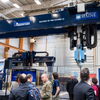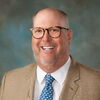Adapting your company to the demands of a millennial workforce
 Sarah Davis
Sarah Davis
Successful businesses in Maine and around the country are seeking out bright young minds who can bring innovative ideas and fill the labor void left by retiring baby boomers. In 2015, Pew Research Center reported that millennials surpassed the so-called Generation X as the largest sector of the U.S. labor force.
As many millennials flock to hot spots like New York City and Silicon Valley, businesses in Maine cities and towns need to explore strategies to draw and keep young talent. Collaboration between government and businesses are key to providing the employment options and cultural amenities that millennials seek.
For businesses, focus areas include adopting advanced communications and technology into operations and employment practices that fit millennials' lifestyle goals. For communities, it often means bolstering public services like transportation and expanding broadband access to support the high-bandwidth needs of millennials.
Millennial expectations
There is no dearth of data on millennials and what they value in the workplace. Businesses positioned in Maine cities and towns should leverage this information, and address the key factors that millennials consider when evaluating employers.
A 2016 Deloitte survey of millennials claimed that two-thirds plan to leave their current job in the next five years. If employers hope to retain their millennial talent, these companies need to ensure they are providing key opportunities and advantages.
Companies must offer opportunities for career progression and advancement. According to a PwC survey of millennials, a majority of millennials identify this opportunity as a primary factor that makes an employer attractive.
Another, perhaps more surprising, finding in the PwC data was less than one-third of millennials expect to work regular office hours. Most anticipate they will have some kind of flexibility, whether that is based on working hours, or their ability to work from home.
Businesses must ensure they have technology solutions that allow employees to share information when working from home or other remote locations. Many companies are adopting advanced data networking and Internet-powered voice communications to empower remote and work-from-home workforces.
The role of community
Community is also important to millennials. They seek out certain municipal amenities in their residential communities, such as cultural institutions, good public transportation, on-demand municipal services, open government communication with constituents, and widespread digital broadband access.
An example of how businesses can benefit from community collaboration ties into one of the earlier findings about millennials' interest in flexible schedules. In order to ensure that 'work from home' policies will be successful, businesses must have confidence that there is widespread broadband access in their community.
When local governments and local broadband providers join forces, communities can make their small city a prime destination for millennials. Good ways to start this partnership process is to work together to gather information about broadband, inventory the network infrastructure and services in the municipality, and consider broadband options as part of the community planning process.
Technology and cultural developments will loom large in driving millennial interest in living and working throughout Maine communities. If Maine businesses are able to deliver a flexible technology-enabled work experience, with comparative opportunities for growth and development, they will be much more competitive in the employment market. If organizations are able to work with their municipal government officials to ensure that digital access extends past the front door of the business with high-bandwidth connections available throughout the area, Maine communities will have a greater chance of attracting, and sustaining, their millennial population.
Sarah Davis is the senior director of government relations and wholesale strategy at FairPoint Communications. She can be reached at communication@fairpoint.com










Comments